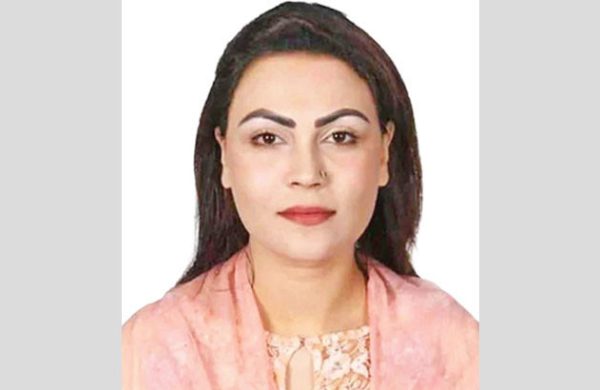Farmers first: Bold reforms Bangladesh needs which Yunus must deliver
- Update Time : Monday, September 16, 2024

–Nazmus Sakib KhanNazmus Sakib Khan–
Bangladesh stands at a historical juncture. Under the leadership of Nobel Laureate Professor Muhammad Yunus, the interim government faces a unique, once-in-a-generation opportunity to address the long-standing structural weaknesses which have deprived the people of this country of a better future.
Our foreign reserves are now depleted to less than $20 billion, down from $41.83bn just two years ago. Agriculture is the very backbone on which the economy of Bangladesh stands on, employing around 40% of the workforce and contributing 11.5% to our GDP. As of August 2024, the inflation was approximately 9.02%, and the increases in the food price levels play an instrumental role within the Consumer Price Index (CPI). For a mother standing in a crowded market, watching the price of eggplants and tomatoes soar, the question of whether to buy enough food for the family becomes agonizing — and this is where Hasina failed.
A course correction
While Hasina’s government let systemic inefficiencies fester, Yunus now has the opportunity to reverse course and offer the bold reforms Bangladesh so desperately needs — without immediate intervention, rising food prices will further strain household incomes, which could drive consumption down, worsening inflation and threatening other sectors like retail and manufacturing, creating an overall ripple effect across the economy.
Small-holder farmers, who cultivate around 85% of Bangladesh’s agricultural land, are not just facing economic strain — most of them are based in rural areas, and are struggling without access to modern technologies that could transform their yields. The reality is intensely harsh: More than 70% of Bangladeshi farmers do not have access to formal financing — further aggravating the conditions by crippling our farmers in cycles of suboptimal production and rising costs. As they watch their crops fail under input price hikes and the instability in market conditions, they are not just losing profits — they are losing hope, and hope is what all they have.
Breaking the cycle
To break this cycle of despair, the interim government must prioritize developing a national framework for future adoption and hyperscaling of emerging technologies — focused towards a national agro-ecology and precision agriculture initiative.
Agroecology takes into account ecological principles into agriculture, and has demonstrated potential to increase yields by 20 to 30% — but that largely depends on crop type and location, and is also known for decreasing water and chemical costs by 25 to 30%. If Yunus, through agricultural reforms, is able to increase capacity with real-time soil monitoring, predictive weather analytics, and precision irrigation, we could potentially see an increase in resource efficiency by 20%, — again depending on the speed of technology adoption.
Developing a national framework is not just a policy; it can transform lives. A good case in point is India’s Pradhan Mantri Fasal Bima Yojana (PMFBY), which has effectively integrated precision agriculture with satellite technology while accelerating real-time risk assessments — resulting in more transparent claims processing. Our interim government, while addressing payout delays and focusing on farmer satisfaction, should draw lessons from this example, emphasizing the actualization of satellite and sensor-based solutions to protect our smallholder
farmers from unpredictable climate shocks, while at the same time, increasing productivity across the country’s agricultural sector.
Part of the plan
While emerging technologies promise long-term gains, immediate actions are instrumental. Yunus must take decisive actions in an urgent manner — his portfolio still includes the Ministry of Food. It is imperative that our interim government design an ambitious, yet achievable, 100-day plan, one that addresses urgent agricultural reforms to stabilize food markets. With the initiation of a 100-day plan, the interim government could potentially address two major gaps: Accelerate urgent relief, while setting the stage for long-term resilience which future governments can bank on.
A core part of this agenda must be the launch of various agroecology and precision agriculture pilot projects, but initially hyper-focusing on Rajshahi and Khulna. Small-holder farmers based in these regions have been hit the hardest by outdated agricultural practices, while facing a lack of access to modern technologies.
Within the next year, these pilots should be expanded nationwide. But pilots alone won’t cut it. The interim government should lay the foundations for initiatives that integrate co-operative farming models to allow farmers to pool resources, share advanced technologies, and access low-interest loans from the Bangladesh Krishi Bank (BKB). In the cases of South Korea and Japan, similar co-operative programs have managed to increase productivity levels by 30-to-40%, and in the context of our country, it could demonstrate similarly transformative impacts.
It’s all about agriculture
Addressing post-harvest losses must be at the very centre of our agricultural reforms. The post-harvest losses in 10 food items including grains, spices, and fruits, amounts to 5.13 million tons worth $2.4bn annually — further exacerbating food insecurity, inflating the prices associated with food — this happens in a condition when Bangladesh spends over $12bn a year in importing agricultural products like wheat, edible oils, etc. And at this point, the interim government has to lay foundations where emerging technologies such as well-regulated food irradiation methods could be utilized at scale to extend the shelf life of perishable food products, which could potentially reduce hundreds of crores of post-harvest losses.
This is not just about numbers; it is about ensuring that our children do not go to bed hungry and that our farmers do not watch their hard work get spoiled.
The core objective of the agricultural reforms should be on reducing post-harvest losses by 10% and saving $1bn annually in agricultural imports for future governments. During the term of future governments, we would like to see this target increase to 20%, and the groundwork done by Yunus should be fundamentally so strong that it enables future governments to facilitate a $2bn reduction in agricultural imports. The interim government’s overall objective should be to build foundational platforms that enable future governments to trigger increased crop yields by 15%.
A matter of trust
The actualization of the agricultural reforms depends on how quickly the interim government can bring people’s trust back to the public institutions. Due to severe economic mismanagement and corruption under Hasina, trust in public institutions have eroded. Corruption, inefficiency, and political patronage — all collectively have influenced the citizens to become disillusioned with the potential of the impact publicinstitutions can make. To rebuild Bangladesh, Yunus must rebuild public trust — it is about giving people of this country the hope that their government can once again work for them, not against them.
Yunus now has the opportunity to rebuild national trust through transparent governance — a national digital governance platform, where citizens can track not just policies but progress, monitoring agricultural initiatives in real time. Rolling out a digital subsidy transparency platform would make it possible for farmers to monitor the allocation of agricultural resources in real time at the most hyper-localized level, ensuring that corruption and bureaucratic inefficiencies are minimized that have long distressed the agricultural sector — empowering citizens and farmers, while holding our bureaucrats accountable. The trust factor would be reinforced within our public institutions managing the agriculturalresources, instrumental for the actualization of structural reforms needed to increase productivity and to ensure food security.
A future for everyone
Bangladesh’s future depends on bold, strategic reforms. The interim government needs to build the groundwork for a future where every citizen feels seen, heard, and valued. Yunus has to acknowledge that broad levels of austerity suffocates the economy, and unchecked expenditure risks further depleting reserves. In Bangladesh, he brings unimpeachable personal integrity, and, internationally, he has a tremendous personal brand — but success of these reforms will depend on how effectively he can rally political and institutional support for their implementation.
The interim government should forward the structural reforms in the agricultural sector in a manner that pivots the country toward a path of resilience and inclusive growth. Bangladesh cannot afford to keep repeating past mistakes. Yunus has to solidify his legacy — not just as the father of micro-finance, but as the leader who laid the foundation of ushering Bangladesh into a new era of peace and prosperity.
His leadership in this interim period must focus on turning groundbreaking reforms into tangible results, laying the foundation for a more resilient and equitable economy. The future is not just an opportunity; it is an obligation. We cannot wait — Yunus must not fail.
Nazmus Sakib Khan is a Fellow of the Royal Society of Arts, Manufactures and Commerce (RSA) and serves on the RSA Young Fellows Advisory Board. He is a Global Shaper of the World Economic Forum. Nazmus studied Economics at the University of Warwick. The views expressed are his own.



















